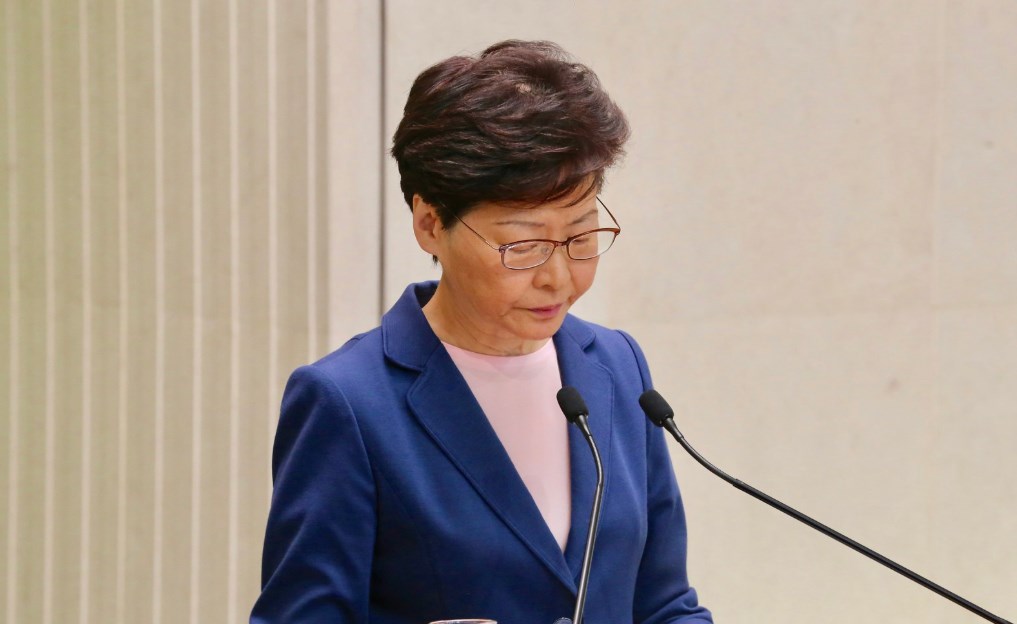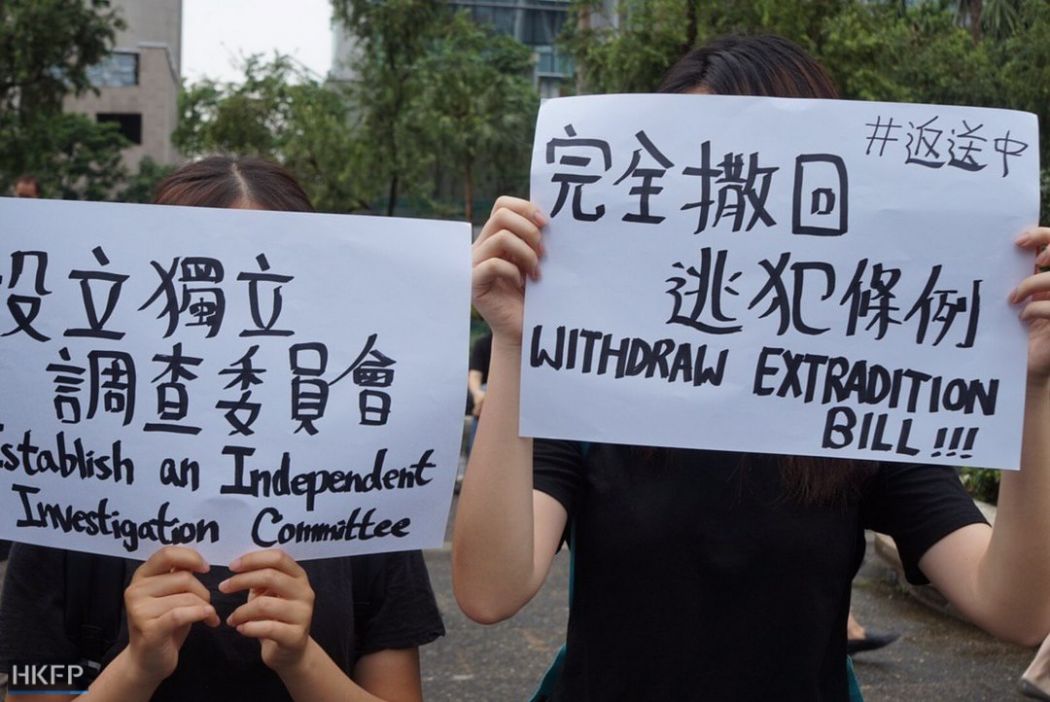Chief Executive Carrie Lam has said the government’s controversial extradition law proposal is “dead,” but she stopped short of withdrawing it entirely.
Previously, Lam suspended the bill amid mass protests, saying it will expire next July when the Legislative Council’s current term ends. But protesters have continued to demand the plan be axed completely.
Lam made her first public appearance since July 1 on Tuesday ahead of the weekly Executive Council meeting. On July 1, protesters stormed the Legislative Council building, after the government failed to respond to their demands. Anti-extradition bill protests erupted again last weekend.

“The bill is dead,” Lam said. “People do not have to worry that we should use some means to discuss this bill again within this legislature term.”
Protesters also demanded that the characterisation of a protest on June 12 as a “riot” be withdrawn. Police used tear gas, rubber bullets and bean bag rounds to disperse anti-extradition law demonstrators.

Lam said the government had not labelled the June 12 protest, and labels given by others will not affect prosecution work independently carried out by the Department of Justice. Anyone deemed to be participating in a riot could face a decade behind bars.
She also said the demands for amnesty for those arrested were unacceptable under Hong Kong’s rule of law.

Asked if she will resign, Lam said she hoped the public would give her, and her team, an opportunity to serve Hong Kong, as she admitted the implementation of the bill had been a “complete failure.”
‘Open dialogue’
On Tuesday, former chief justice Andrew Li called for an independent commission of inquiry in an op-ed published in major newspapers.
Lam said the Independent Police Complaints Council (IPCC) had launched a study into the recent protests, adding that she will not order an independent commission of inquiry as protesters demanded.
Unlike an official inquiry, the IPCC study has no legal power to summon witnesses.
Lam said she had reached out student leaders and had invited the student unions of the University of Science and Technology of Hong Kong and the Chinese University of Hong Kong to a discussion. The student unions, however, refused to meet her in a closed-door setting.
In response, Lam said she would welcome a public dialogue.
“I hope this open dialogue will be conducted with no prerequisites,” she said.

She said she will enhance the role of non-official members of the Executive Council, her top advisory committee. “So that they will also shoulder important responsibility engaging public opinions and reflecting those opinions to me,” she said.
When asked about political reform and the 2014 pro-democracy Umbrella Movement, Lam said there remained “deep contradictions” in society which had not been resolved.
“This time, I don’t think we can continue to ignore those fundamental and deep-seated problems in Hong Kong society,” she said. “I hope together with Hong Kong community, we can go deep into those issues.”
Lam said the government will reform its work when it comes to young people, including a review of the cope and appointment mechanism of the Youth Development Commission, led by Chief Secretary Matthew Cheung.
She proposed setting up open platforms to facilitate dialogue for people from different backgrounds: “They should come from a more diverse background so that we can really receive a wider spectrum of views of society.”

Shortly after the press briefing, Democratic Party leader Wu Chi-wai said Lam had not given an answer as to how trust and legitimacy could be rebuilt for the government and police force.
He said Lam must set up an independent commission of inquiry to look for answers: “The public has been waiting for her for four weeks. It is a long time in politics.”
Meanwhile, activist Joshua Wong tweeted: “The proper way for Mrs Lam to “kill” the bill is to invoke article 64 of the Rules and Procedures, to FORMALLY WITHDRAW the bill. However, she fully IGNORE[D] this procedure in her speech.”
[THREAD: Fed up with Carrie Lam’s wordplay]
1. What #CarrieLam saying “the Bill is dead” is another ridiculous lie to the people of #HongKong and foreign media because the bill still exists in the ”legislative programme” until July next year.
— Joshua Wong 黃之鋒 😷 (@joshuawongcf) July 9, 2019
The pro-democracy Civil Human Rights Front, which has organised recent mass rallies, will meet the press at noon.
